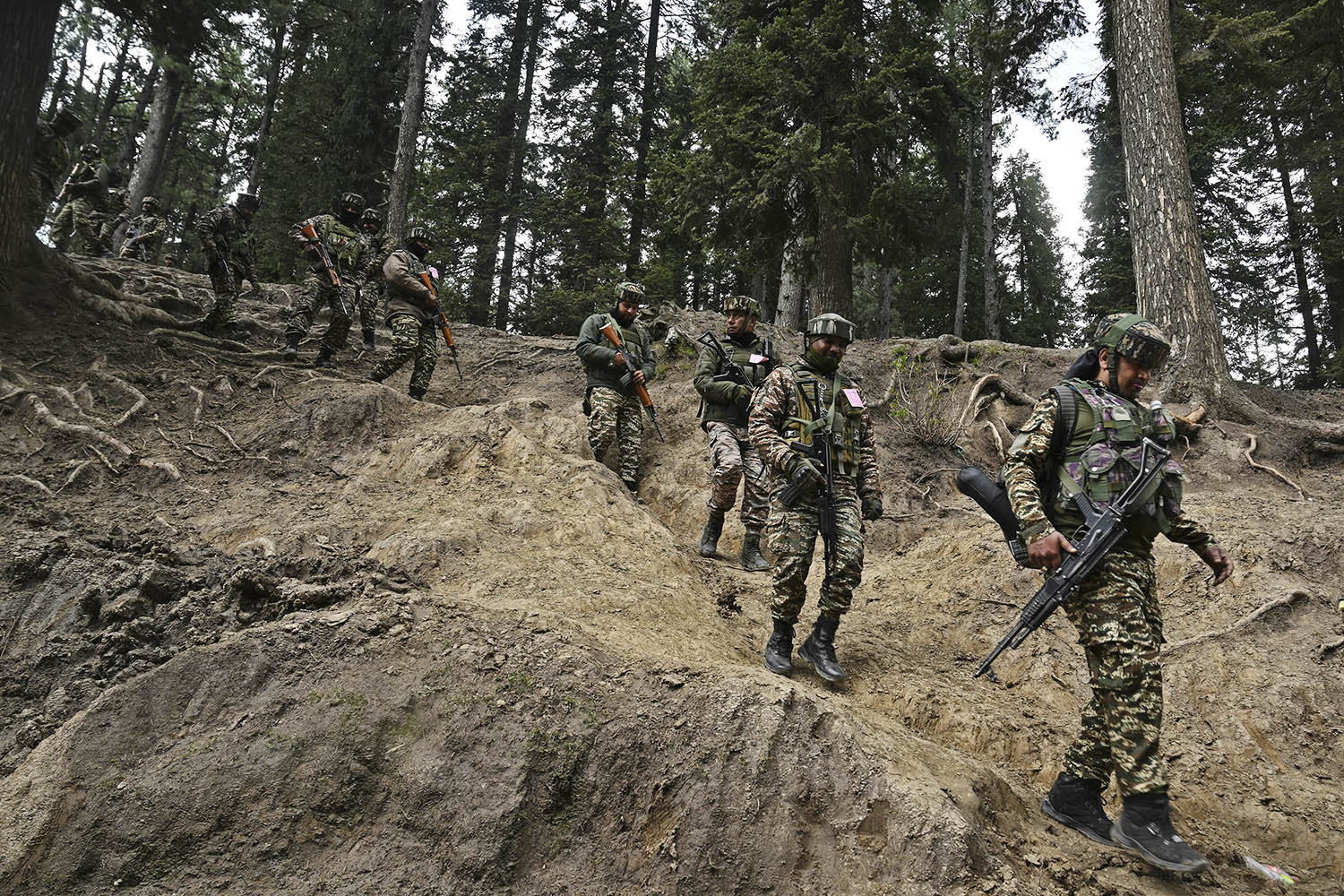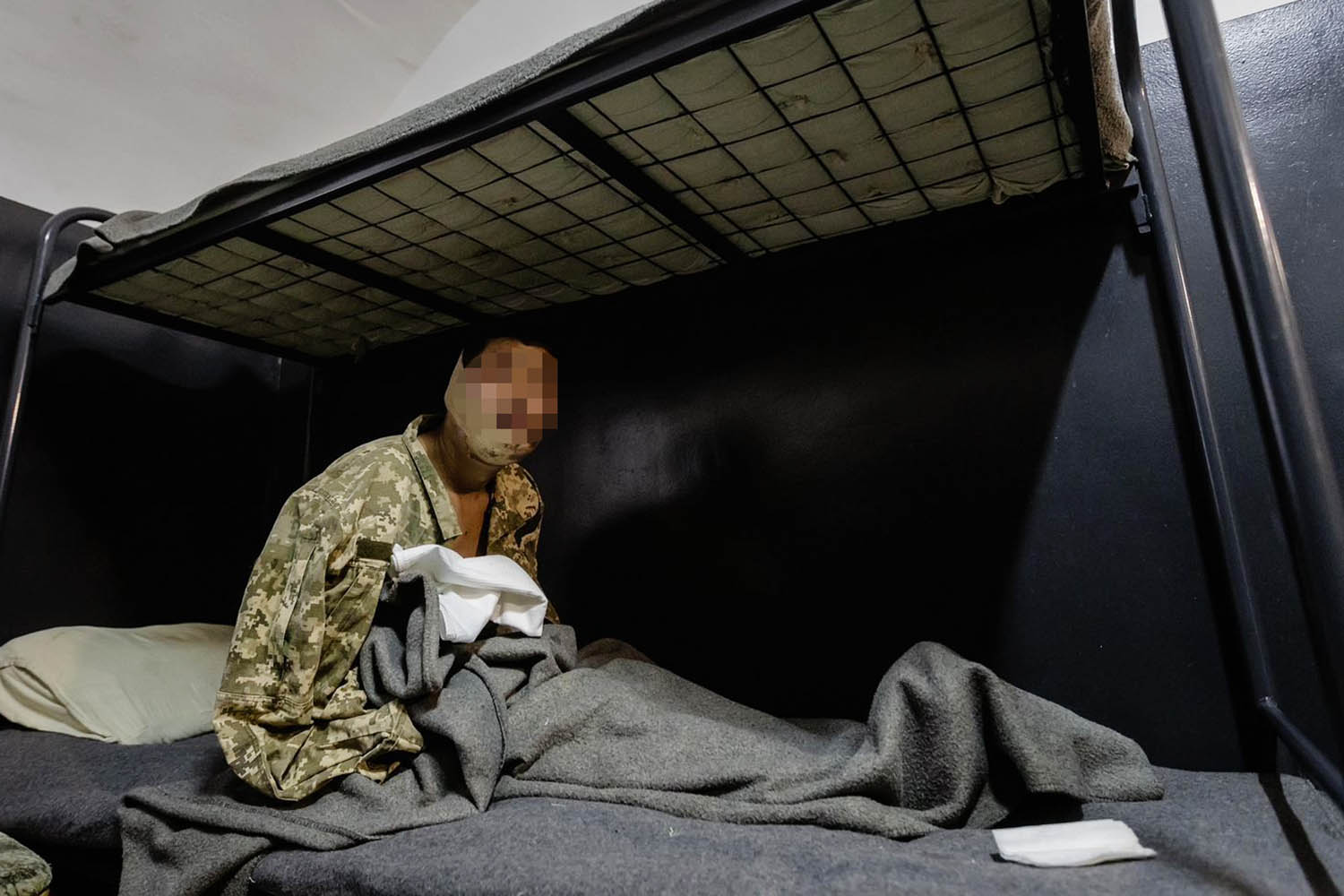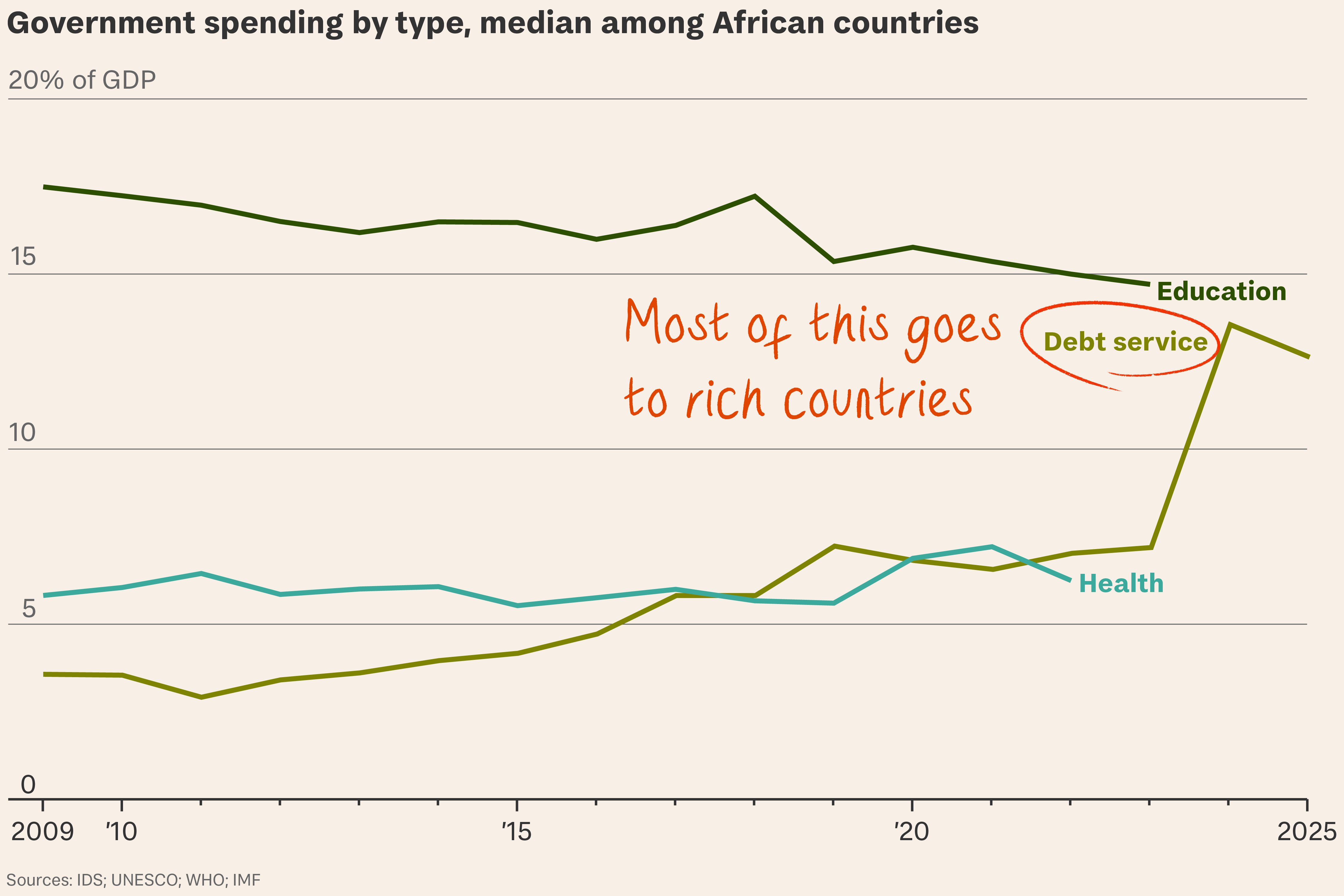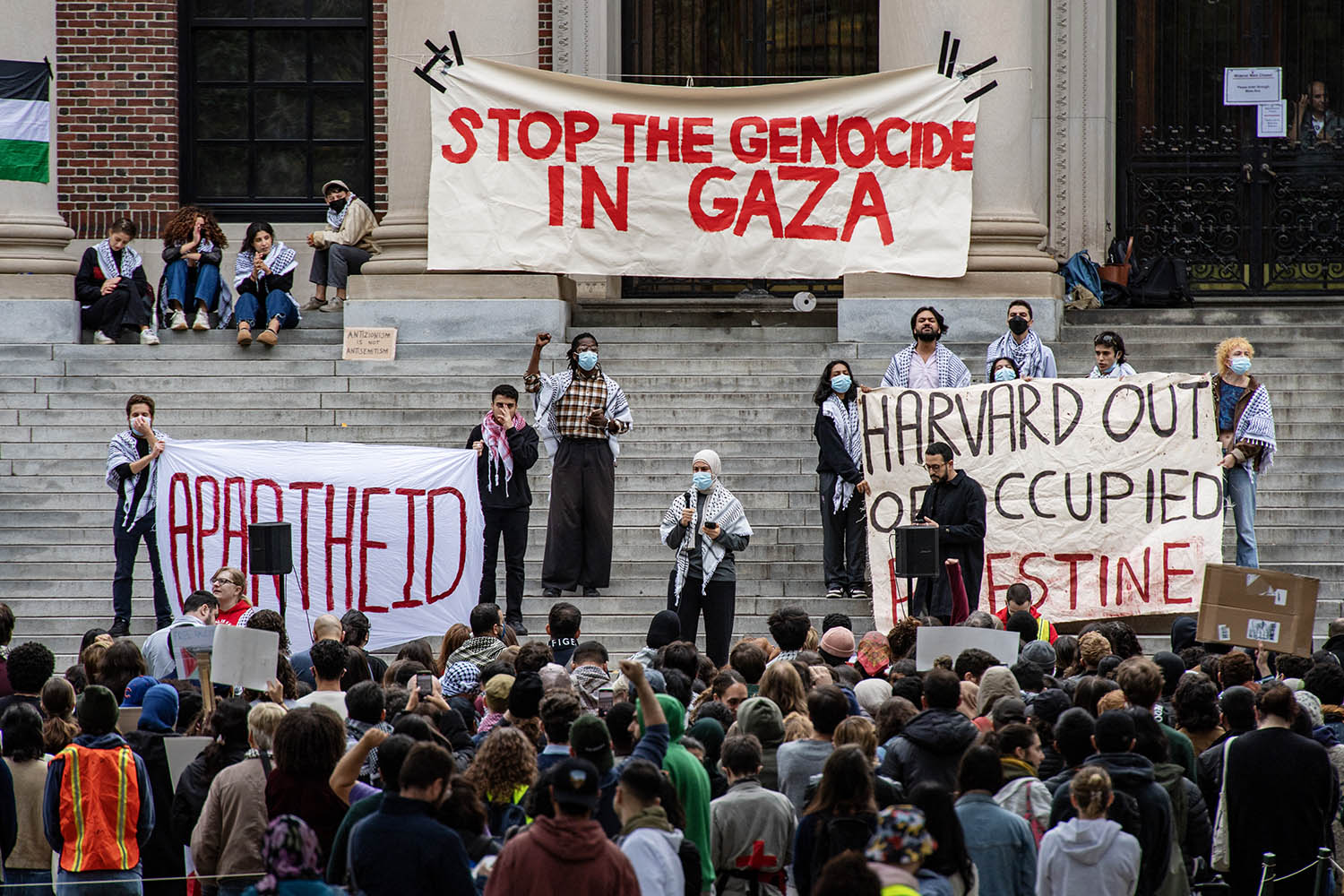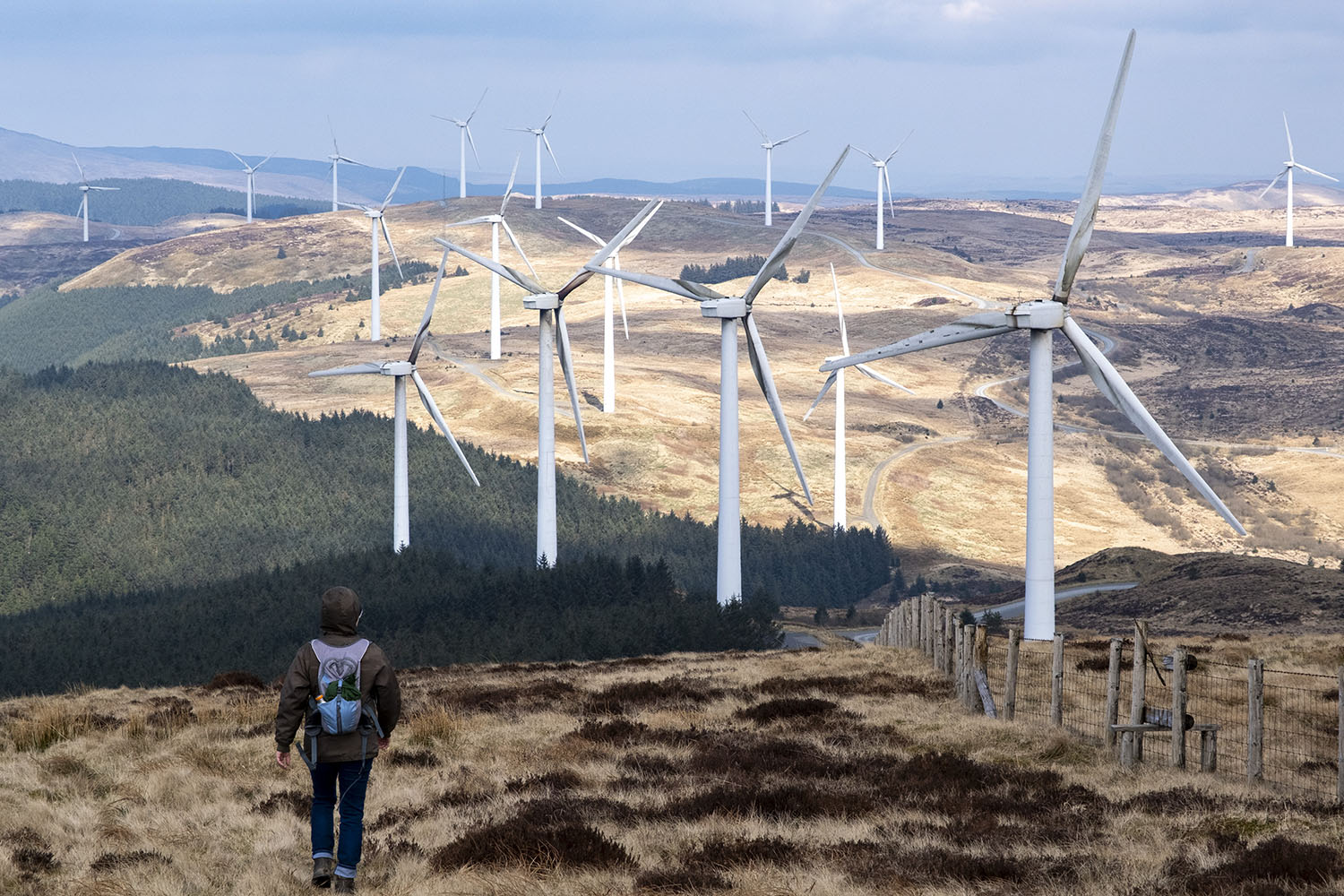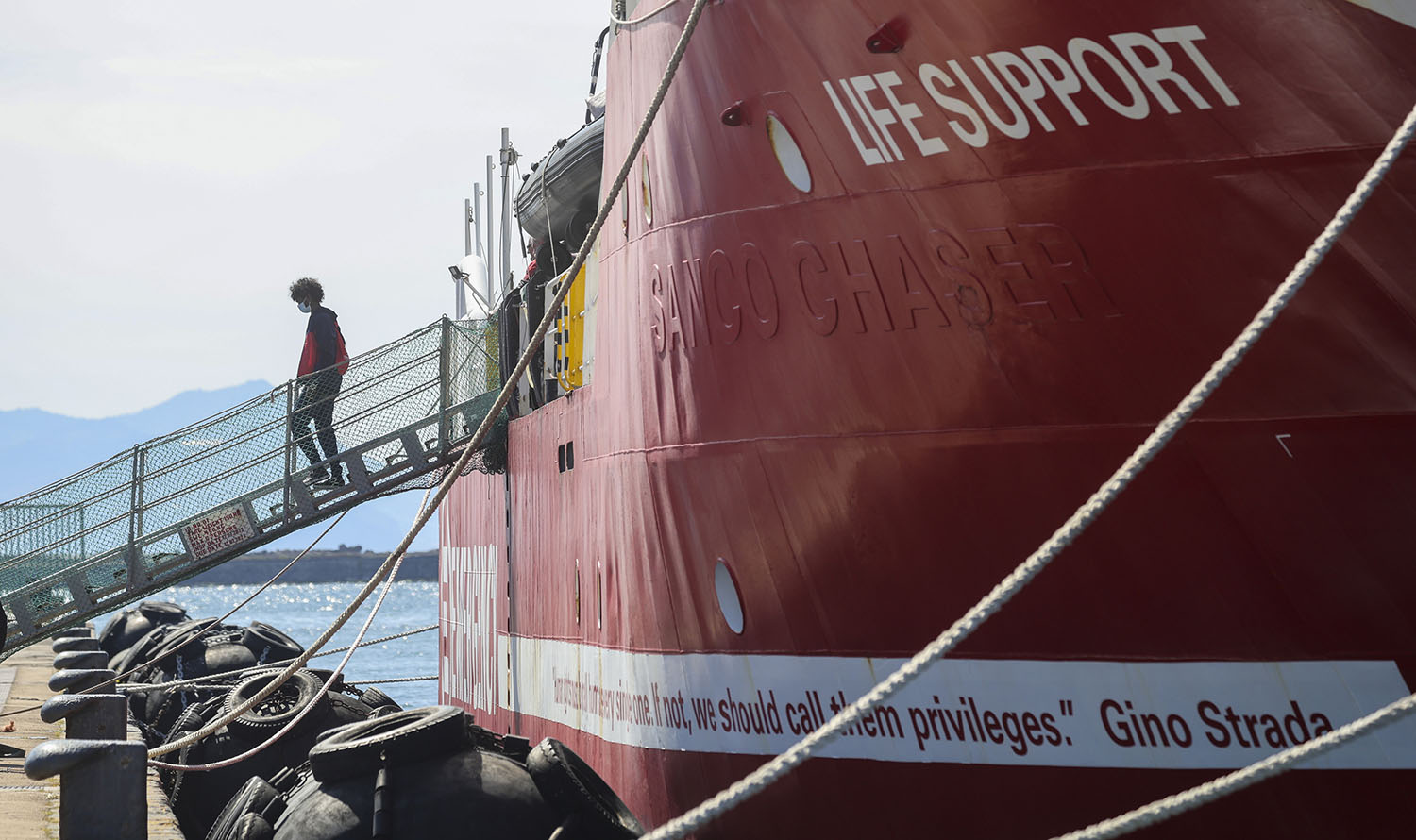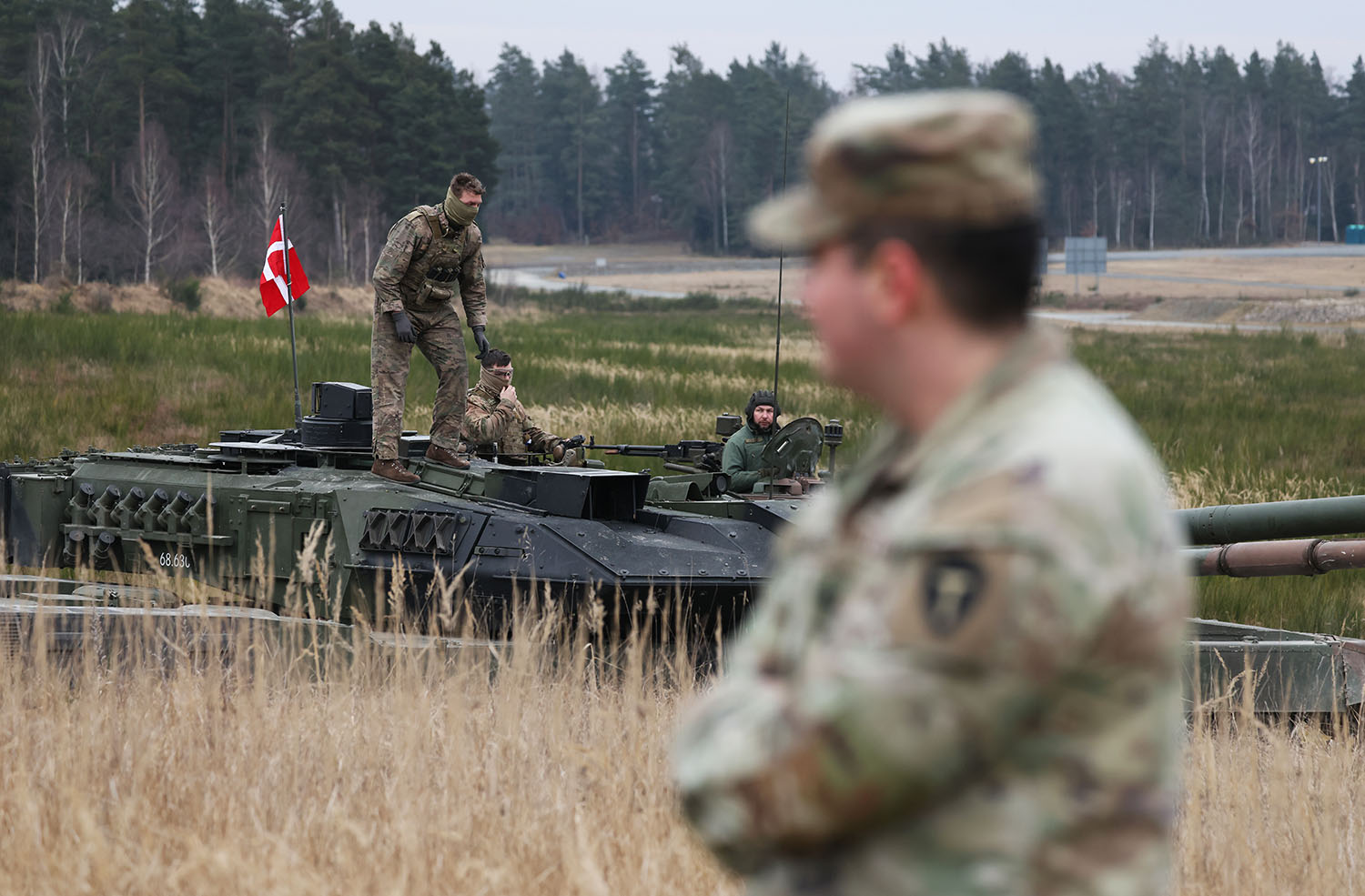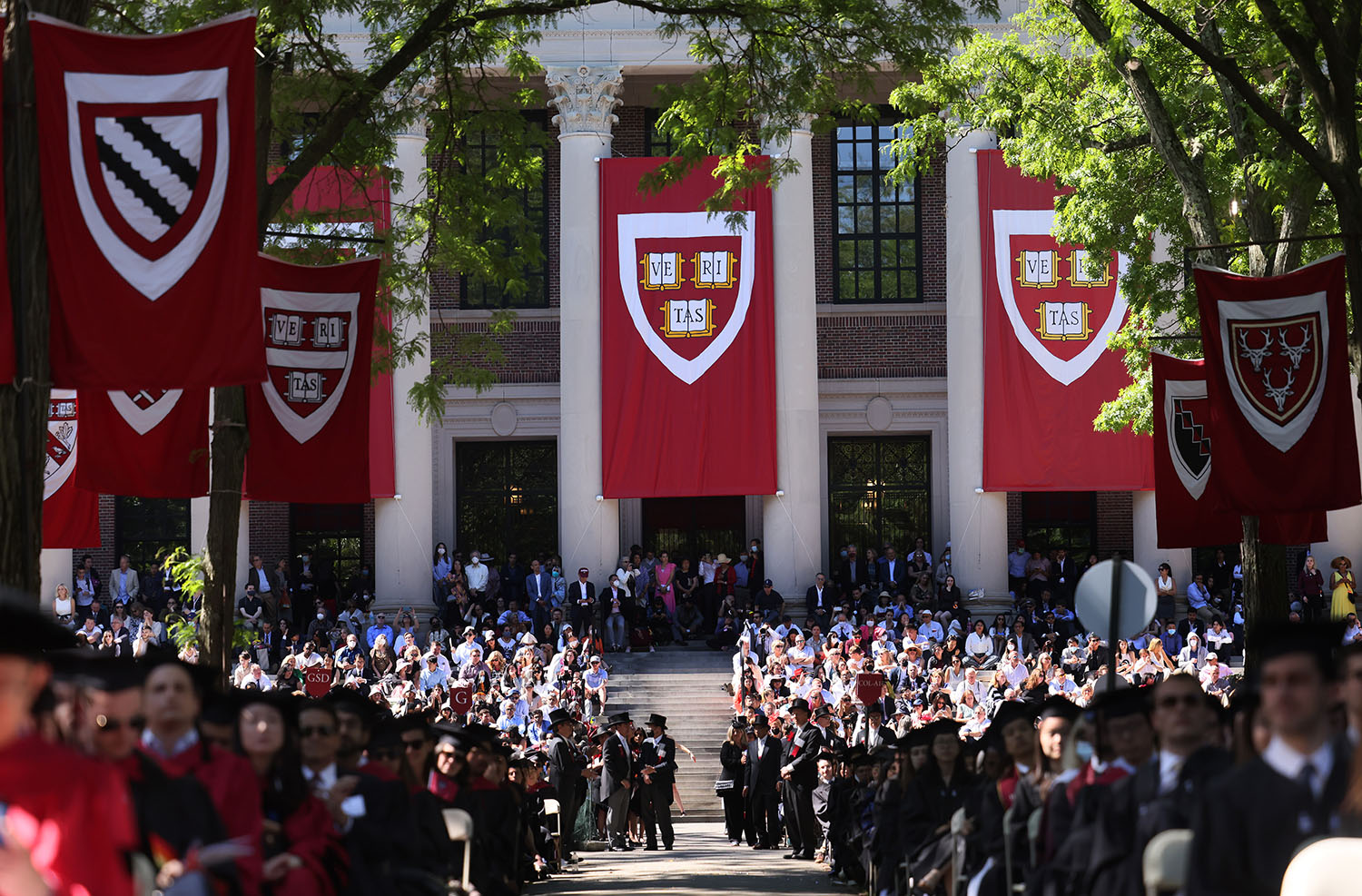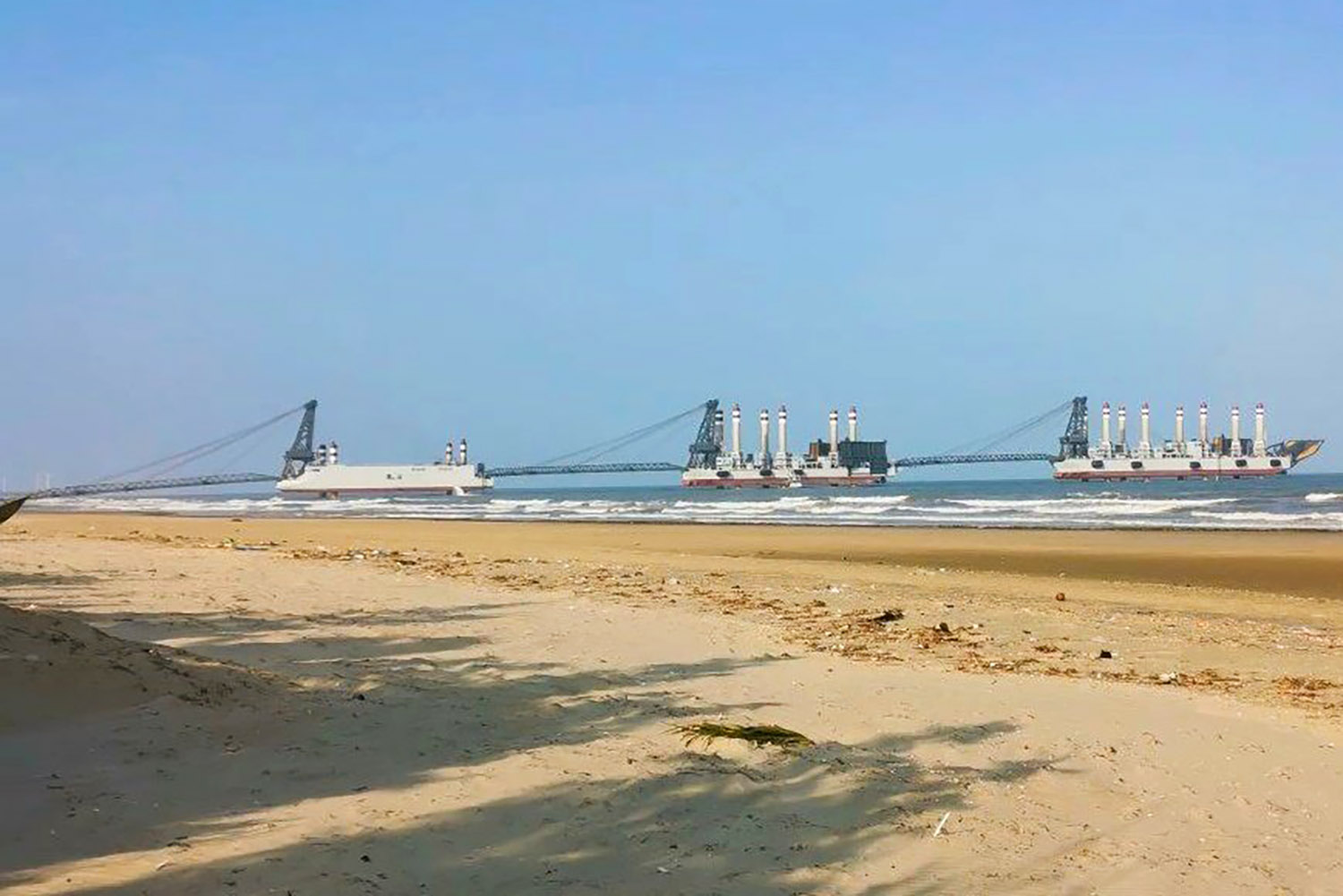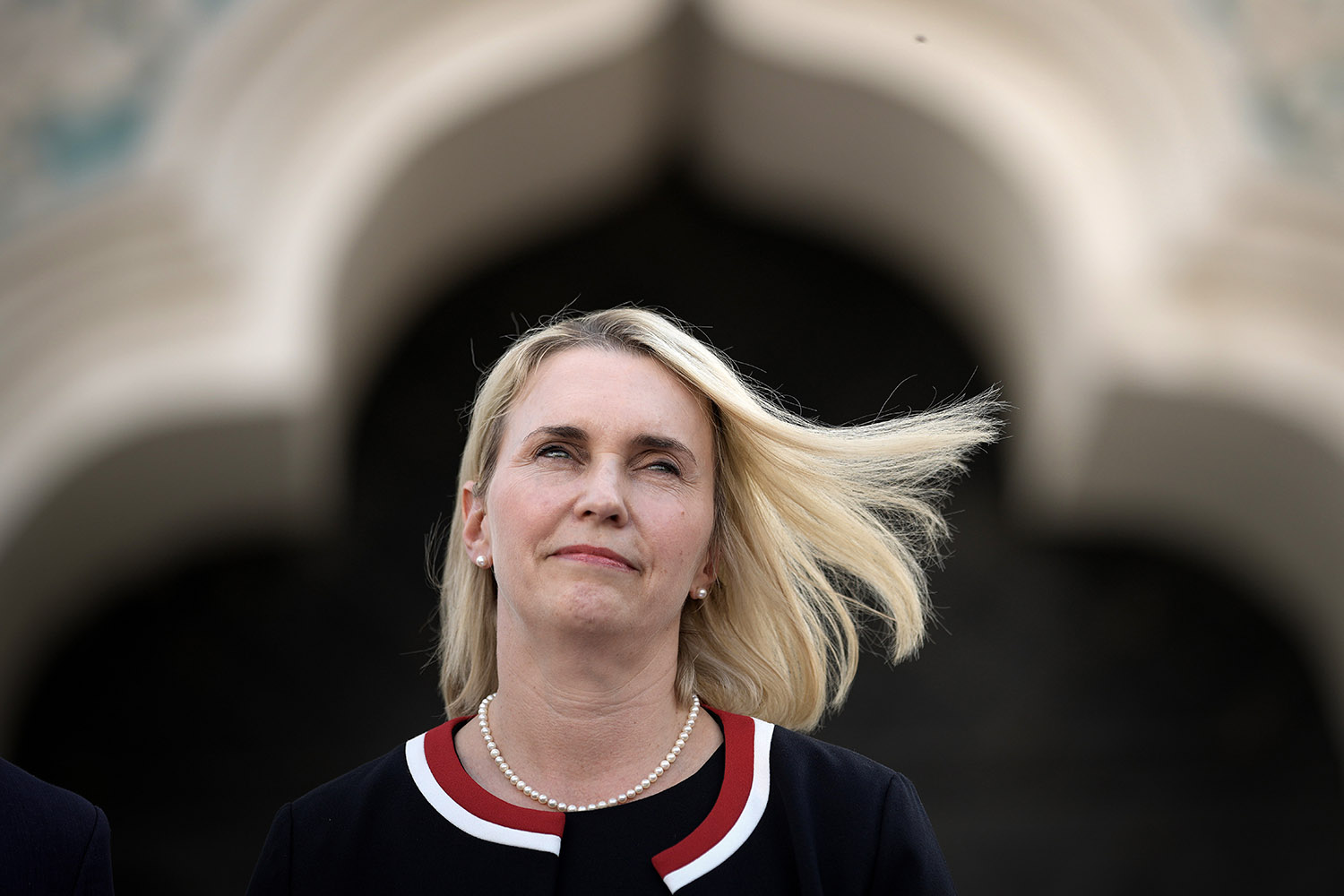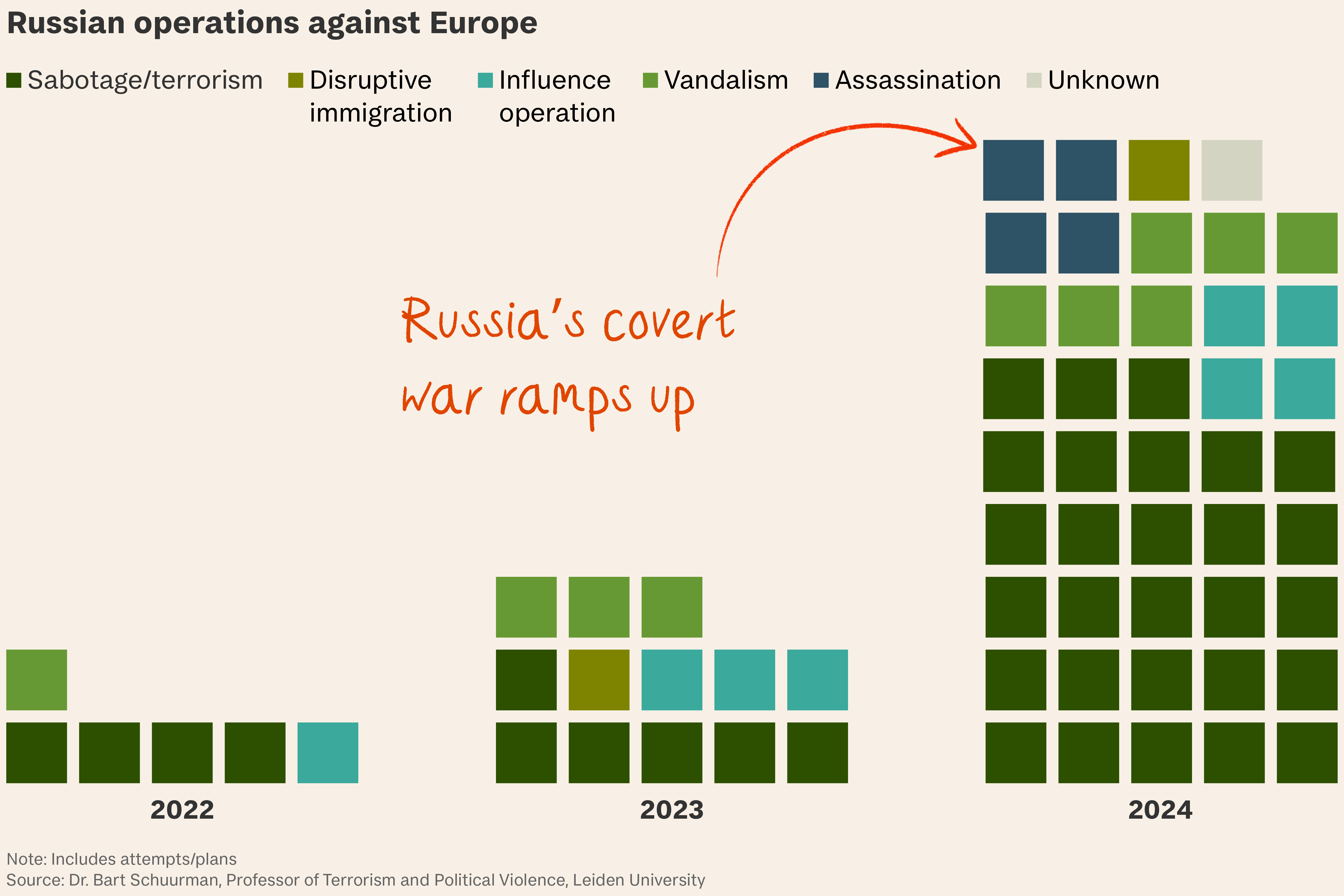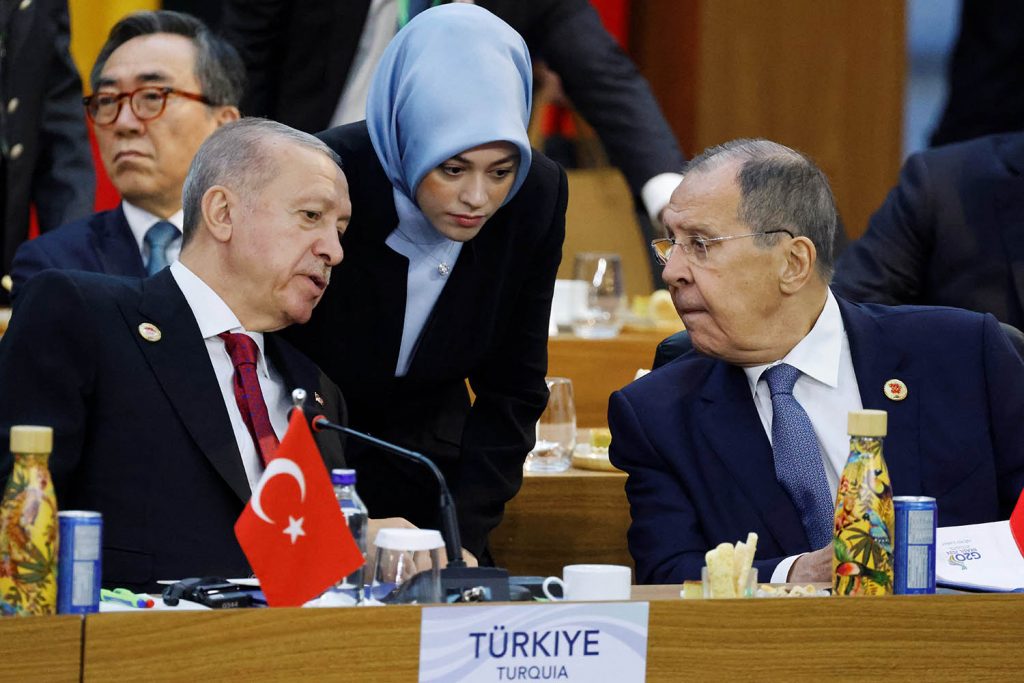
Turkey’s President Erdoğan has long been angling for a role as mediator between Russia and Ukraine, and he arrived at this week’s G20 summit in Rio with a peace plan.
The proposal was reportedly to freeze the conflict on current lines and keep Ukraine out of Nato for 10 years – half as long as in a version of the Trump plan trailed in the WSJ, and likely to leave Ukraine an easy target for another Russian invasion. Putin’s spokesperson Dmitry Peskov called the idea of freezing the conflict along the current frontline “inherently unacceptable” to Russia.
The plan was rejected before it had even been presented, but it was another sign that Trump may find it harder than he expects to end the war in a single day.
Ukraine’s President Zelensky didn’t get an invitation to the G20. Putin did, but turned it down in order not to “disrupt” the summit. Translation: he might have been arrested on the warrant issued against him by the International Criminal Court for alleged war crimes in Ukraine.
Ahead of the summit, hundreds of Russian missiles and drones were launched against Ukraine, killing dozens of civilians. Russian troops advanced near Kupyansk, and some G20 nations suggested North Korea could eventually send Russia as many as 100,000 troops.
Having previously avoided discussing wars, the G20 is planning to pay them more attention this year. Diplomats say there is likely to be a general paragraph on UN principles and the need to respect peace in the final communiqué, followed by one on Ukraine and another on Palestine.
This is the last G20 with Biden as US president and the first since Trump’s election. With a trade war against China in view, he has already called for allies to take a more aggressive approach towards Beijing.
Keir Starmer, by contrast, emphasised the importance of a “strong UK-China relationship” while meeting China’s Xi Jinping. Starmer said he sees possibilities for mutual cooperation on climate change, trade, investment, clean energy, financial services and healthcare. He said areas of UK-China disagreement include Hong Kong, human rights and the war in Ukraine, but the widening gap between the US and the UK on China is still striking.
